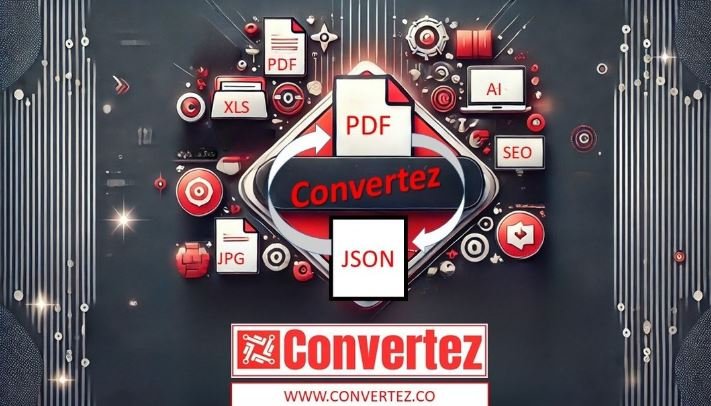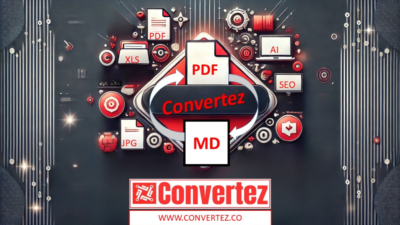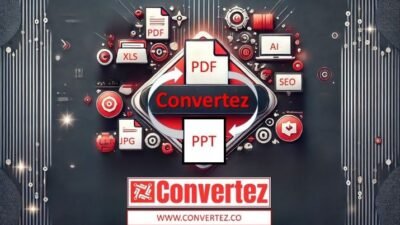In today’s digital-first world, data is more valuable than ever—and the way we store and transfer that data is just as important. PDFs (Portable Document Format) are one of the most commonly used file types to share documents across platforms and devices. However, while PDFs are great for readability and printing, they aren’t always ideal when you need to extract, manipulate, or use data in software applications. That’s where converting a PDF to JSON comes into play.
In this blog, we’ll explore what PDF to JSON conversion means, why it’s useful, how you can do it, and some of the best tools available to get the job done.
What Is PDF to JSON?
JSON (JavaScript Object Notation) is a lightweight data-interchange format that is easy for humans to read and write and easy for machines to parse and generate. It’s widely used in web development, APIs, databases, and applications to structure and exchange data.
A typical JSON file looks like this:
jsonCopyEdit{
"name": "John Doe",
"email": "john@example.com",
"age": 30
}
The structure is hierarchical and consists of key-value pairs, making it perfect for storing data that needs to be accessed and manipulated programmatically.

Why Convert PDF to JSON?
Here are several reasons why you might want to convert PDF files to JSON:
1. Data Extraction
PDFs are designed for presentation, not for data storage. If you have a table, a form, or structured content in a PDF that you want to analyze or use in a software application, converting it to JSON allows you to extract and use that data easily.
2. Automation and Integration
Developers often need to integrate PDF-based data into software systems. JSON is ideal for APIs and databases, so converting PDF content to JSON makes it easier to automate tasks or connect to other services.
3. Machine Learning & Data Analysis
Structured data is a prerequisite for data science and machine learning. If your training data or reports are in PDFs, converting them to JSON is a crucial first step.
4. Faster Search and Filtering
With JSON, you can easily search, filter, and analyze data using scripts and programs, something that’s difficult and inefficient with raw PDFs.
Use Cases of PDF to JSON Conversion
- Business Reports: Extract tables and sales figures for performance analysis.
- Invoices & Forms: Pull structured fields for accounting or CRM systems.
- Academic Research: Convert structured experimental data into JSON for analysis.
- Government and Legal Documents: Extract structured policy or legal data for automation.
How Does PDF to JSON Conversion Work?
The process of converting PDF to JSON involves the following steps:
1. Reading the PDF
A tool or script reads the content of the PDF file. This can be plain text, images, tables, or form fields.
2. Parsing and Structuring
The extracted data is parsed to detect structure—like rows in tables, headings, or form fields—and then organized into a hierarchical JSON format.
3. Generating JSON
The final structured data is exported into a .json file, ready to be used in applications, APIs, or databases.
Manual vs. Automated Conversion
Manual Method:
You can manually open a PDF, copy the content, and format it into JSON. This method is tedious, time-consuming, and prone to errors—especially for large documents.
Automated Tools:
There are several online converters and software tools that can automate the process. These tools use OCR (Optical Character Recognition) and advanced parsing techniques to convert the content accurately.
Best Tools for PDF to JSON Conversion
Here are some popular tools you can use:
1. Convertez.co
An all-in-one online tool that offers over 250+ free conversion tools, including PDF to JSON. It’s user-friendly, free, and doesn’t require installation or sign-up.
2. PDF.co
A powerful API for developers that lets you convert PDFs to JSON with high accuracy. Ideal for tech teams and enterprise automation.
3. Adobe Acrobat SDK
Adobe provides developer tools to extract structured data from PDF forms, although it requires programming knowledge.
4. Python Libraries
- PyMuPDF
- pdfplumber
- pdfminer.six
These are great for developers who want to script the conversion and have control over the output.
Example: Converting a Simple Invoice PDF to JSON
Suppose you have the following invoice data in a PDF:
yamlCopyEditInvoice Number: INV-1001
Date: 2025-04-01
Customer: Alice Johnson
Items:
- Widget A: $20 x 2
- Widget B: $15 x 1
Total: $55
After converting to JSON, it might look like:
jsonCopyEdit{
"invoice_number": "INV-1001",
"date": "2025-04-01",
"customer": "Alice Johnson",
"items": [
{"name": "Widget A", "price": 20, "quantity": 2},
{"name": "Widget B", "price": 15, "quantity": 1}
],
"total": 55
}
Now, this data can easily be imported into a database or used in a billing system.
Tips for a Smooth Conversion
- Use high-quality PDFs: Low-resolution scans may confuse automated tools.
- Check formatting: Poorly structured PDFs may result in messy or inaccurate JSON.
- Use templates: If your PDFs follow a consistent layout, tools can be trained or configured for higher accuracy.
- Test and validate JSON: Use online JSON validators to ensure your data is well-structured.
Security and Privacy Considerations
When using online tools, always ensure that:
- Your files are automatically deleted after conversion.
- The website uses HTTPS for secure transmission.
- Sensitive documents are not stored or shared.
Tools like Convertez.co prioritize privacy and do not store user files after conversion, which is a big plus.
Final Thoughts
Converting PDFs to JSON unlocks a world of possibilities—from automating workflows to integrating business data into web and mobile applications. Whether you’re a student working on a project, a developer building an API, or a business professional streamlining operations, this simple conversion can save time, reduce errors, and add flexibility to your data processes.

